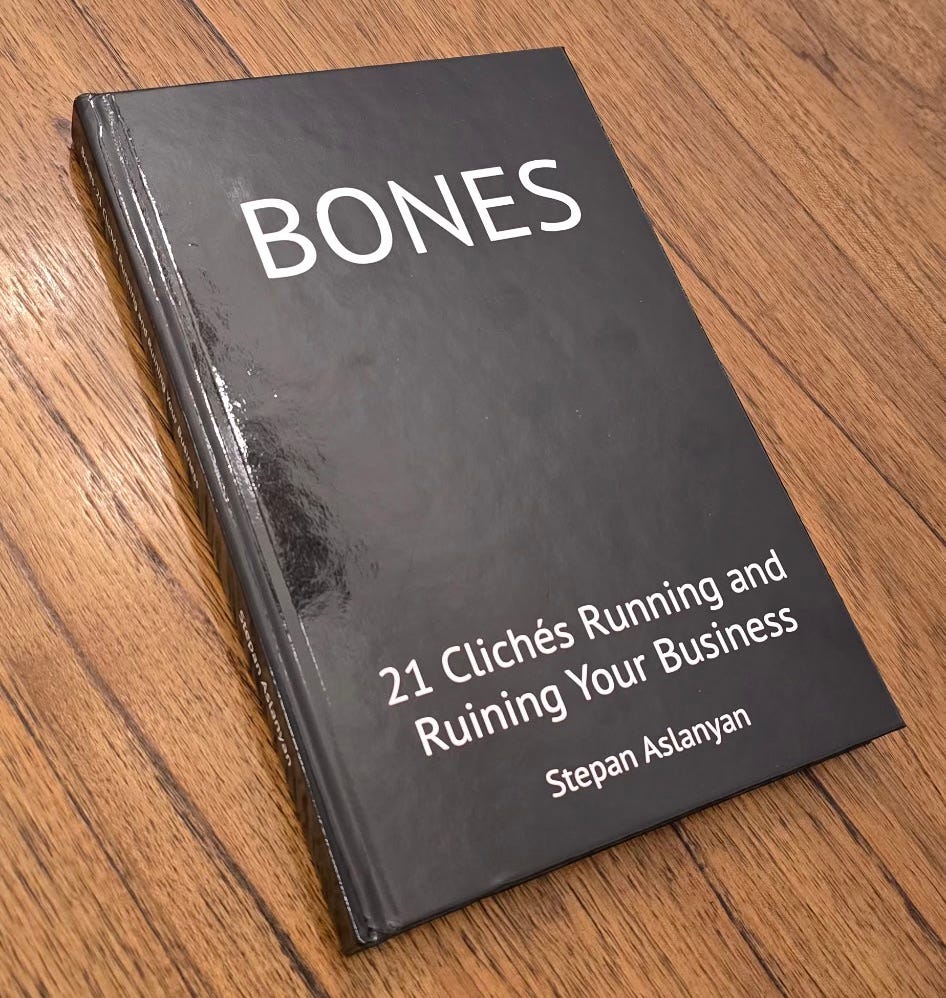I Finally Put These Ideas Into a Book
A longer conversation about the clichés that run decisions more than people admit.
Most business problems look external. Missing tools. Missing automation. Missing data. But after seeing how people build, test, and fix things, I noticed something else underneath.
People get slowed down by the beliefs they inherited.
The rules that sound smart.
The clichés everyone repeats without thinking.
“Hire slow, fire fast.”
“Listen to your customers.”
“Focus on your strengths.”
“Work on your business, not in it.”
And then there are the quiet ones. The lines people tell themselves when they are stuck.
“I’ll start when things calm down.”
“I need more clarity before I move.”
“This is not the right week.”
These phrases look small, but they block more progress than any missing feature.
Some of these ideas work. Some work only in specific situations. Some are stories that survived because successful people repeated them. The dangerous part is when they’re used as universal truth.
I kept seeing this pattern in different businesses, and in my own decisions.
A belief that looks right on the surface, but collapses once you look at the actual context.
The skeleton underneath was missing.
So I started taking these ideas apart, one by one.
Not to be clever.
Not to create new rules.
Just to understand what is real inside them and when they actually help.
Over time these notes became a structured set of chapters. I finally finished and published them as a book.
It is called “Bones: 21 Clichés Running and Ruining Your Business.”
Short chapters. Clear angles. No noise.
Just the underlying patterns that shape decisions more than people admit.
Inside you will find things like
• why “first to market wins” destroys more businesses than it builds
• how “fail fast” can be a trap in disguise
• why customer feedback often gives you the wrong signal
• how people copy success stories without understanding the real conditions behind them
• why context matters more than any belief that comes packaged as truth
The book is just a longer conversation about these beliefs. More questions, more angles, and a chance to look at them without rushing to conclusions.
PS: Regular automation, scraping, and monitoring content continues next issue. If you want more of the thinking behind the work, I explore that in my personal newsletter. Thanks for the momentary detour.


